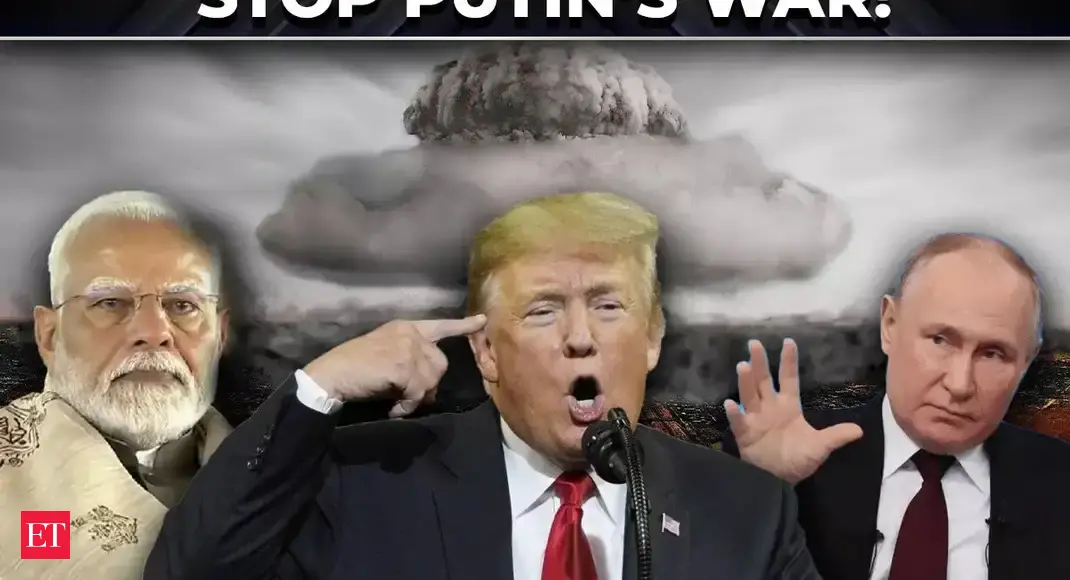

The White House has stated that President Trump's recent imposition of sanctions on India is part of a broader strategy to bring an end to the Russia-Ukraine war. White House Press Secretary Karoline Leavitt announced that these measures are designed to apply indirect pressure on Russia, compelling them to resolve the ongoing conflict.
According to Leavitt, President Trump has decided to increase the tariff rate on Indian goods to 50%, effectively doubling the existing rate. This move is intended to exert "secondary pressure" on Moscow, pushing them towards a resolution. Trump stated that when he informed India about the doubled tariffs, it "essentially took them out of buying oil from Russia". He noted that India is the second largest purchaser of Russian oil and was getting pretty close to China, the largest buyer of oil from Russia. Before Trump doubled India's tariff to 50 per cent by imposing an additional 25 per cent levy on the previously announced 25 per cent, he said that India was "fueling the war machine" by buying oil from Russia.
This announcement followed President Trump's meeting with Ukrainian President Volodymyr Zelensky, during which Trump expressed his willingness to facilitate a trilateral meeting with Russian President Vladimir Putin to help mediate an end to the war. Leavitt emphasized President Trump's commitment to ending the war and his rejection of suggestions to delay any potential meetings. She stated that the President has put tremendous public pressure to bring this war to a close.
Leavitt further elaborated on the administration's efforts, stating that the U.S. government is actively working with both Russia and Ukraine to make the bilateral happen as we speak. She also highlighted the presence of European leaders at the White House shortly after President Trump's meeting with Putin, underscoring the progress being made towards peace.